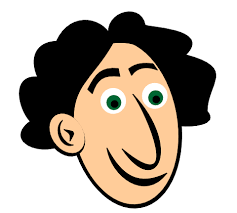Earth Models
We just started our last science unit of the year: Planets and Moons by the Lawrence Hall of Science and Seeds of Science. In case you don't know, these science curriculum units are interdisciplinary - combining reading, writing and science to make a very full program. I love them!
 This unit starts by investigating models. The first model the students investigate is the "Mt. Nose" model. Using their head as a model of the Earth, they explore what happens to Mt. Nose when the sphere is rotating. The students stand in a circle and face a light bulb (we use our lamp with out the lampshade). As we rotate we notice that our mountain is in full sunlight, sunset, full darkness, and sunrise. The students learn that rotating just means spinning.
This unit starts by investigating models. The first model the students investigate is the "Mt. Nose" model. Using their head as a model of the Earth, they explore what happens to Mt. Nose when the sphere is rotating. The students stand in a circle and face a light bulb (we use our lamp with out the lampshade). As we rotate we notice that our mountain is in full sunlight, sunset, full darkness, and sunrise. The students learn that rotating just means spinning.
Next we introduce the model of an inflatable globe. The students work to label four points across the earth (Hawaii, Thailand, Egypt and Florida). Then we observe what happens when those models rotate. They also look for day vs. night. The students work together to compare the two models to the real Earth. What is the same? What is different?
They really did an nice job at noticing the differences between a globe and the real Earth. We did the same thing with the moon's rotation - first looking at a paper pattern showing the phases and then using a Styrofoam ball to model the phases. The greatest part is the computer simulation that shows the day/night connection along with the moon phases.
Love it!
Next we introduce the model of an inflatable globe. The students work to label four points across the earth (Hawaii, Thailand, Egypt and Florida). Then we observe what happens when those models rotate. They also look for day vs. night. The students work together to compare the two models to the real Earth. What is the same? What is different?
They really did an nice job at noticing the differences between a globe and the real Earth. We did the same thing with the moon's rotation - first looking at a paper pattern showing the phases and then using a Styrofoam ball to model the phases. The greatest part is the computer simulation that shows the day/night connection along with the moon phases.
Love it!



